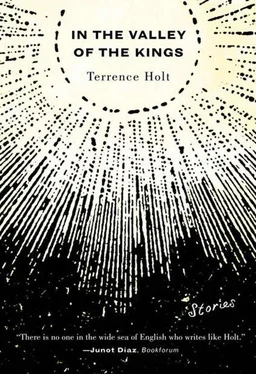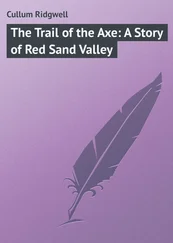I have learned to recognize it. It is clearest in the shape of the hills off to the west, the notch in them where the sun, on these December evenings, sets. They were not there, those hills, when we left on our last voyage. But it is not in their existence that I trace the Law in its clearest function — not in the fact of them so much as in their action. The way they catch at the eye, the way they block the horizon that once lay so vividly flat there was no mistaking that the world was round, the sun a mighty vessel gone hull-down on the horizon, and the whole globe an ocean. Now, these hills, they give a weight, an unfair advantage, to the land, and even the sun seems to sink beneath it. In this I see most clearly the workings of the Law: in this, and in the way I have taken to staring westward, the sea at my back almost always now, almost as if I have forgotten it is there, I look away from it, I look landward, where my crew has gone, and wonder when I will follow them.
I know the stories. Certainly I know the traditions, the gear I should carry, the questions I should wait for. When I should plant the oar. If I am lucky, if the land be fertile, perhaps the oar will sprout. God knows, any oar I find in this town will be green enough.
But I resist, divided in myself, and feeling in that division the workings of the Law. The fluorescent lights in my office, the soft muttering of the television set at home, the children who each day astonish me as they grow strange and stranger, their voices roughen, their faces lengthen, until I seem to have come home to the wrong house by mistake, and somewhere down this line of cottages my life is waiting, my wife wondering what can be keeping me: all of this, I know, is the Law.
Only, I tell myself, only this questioning, only my doubt that these changeling children can be my own, only my conviction that my life lies elsewhere, in the dream of my ship’s return: only here, I tell myself, and in this story I tell you, hoping you will understand — only here I hold the Law at bay.
But it is hard. I feel the weakening of my resolve, the strength of my limbs draining away under the Law. I have, in fact, grown old here on the land. Each year at Christmastide, the cards are fewer. Anderson died last year, succumbing to the curse that seems to have dogged his family, a curse we all know to be the workings of the Law, but why it should have worked more strongly in him than in the others, I do not know. The years have passed as quickly as any dream, the children are truly strangers, voices on the telephone. There are resentments between us now, old grudges I cannot remember, and these, too, are the workings of the Law.
Only my wife resists; only in her do I feel as if time and the Law might have their exceptions. Our bodies, of course, it owns entire. They luff in a failing wind. We blow as we climb the hill to our home, and the second floor is shut off, cold in the winters, an odd, faint, salt smell there, as if in some forgotten closet my old sea-gear lies moldering. Every thing about us succumbs to the Law, except in certain moments, rare always but constant, moments, perhaps, when she walks me to the wharf, and places me so as to look out to the sea, knowing (I have complained of it) that I forget, and stands beside me in a companionable silence. In these moments, I notice that her eyes have not changed, not in all the years that have vanished under the Law. And though the pressure of her hand upon my arm is uncertain now, the shiver in it always there, the fingertips cold often of late, something there, as well, I feel has not changed.
But is this enough? When the Law comes finally at last to claim us, what then?
For I know this as well about the Law: It is inscrutable in its workings, irrational and slow. It will not take us together, nor will it take us quickly. Not often these days, not like in the early days, when an ax upon a scaffold, a scything of plague, or even shipwrecks that I read of in the news: these, it seems, are things of the past. It will be more decorous, more closely regulated, until, at last, even our breathing will come under its control. When that moment is here, and we are finally sunk beneath the Law, I doubt that even the color of her eyes will be the same to me.
My crew have not responded to my letters; the telephone rings and rings in empty rooms. A few who linger here along the seashore tell me they are old now, the sea is no life for them. Only my wife and I still watch, and we are feeble, but still she helps me look toward the sea. We have been talking. At nights, when I cozen myself in thinking that the Law is asleep, we speak low together beneath the counterpane of what still might be. Tomorrow, I tell her, the winds may have changed, the currents may have brought her back again around the globe. Tomorrow she may ride there at the wharf, and we might board her. It could be done. They have done amazing things with ship’s tackle now: the two of us might manage her alone. And my wife, companionable, agrees, and plans what ports we might call on, what cargoes we might carry, what distant shores we might explore.
It may be, I tell her, that the ship will founder. She may be, in a storm, too much for us, even if we fit her with the finest. It may be that those ports I used to visit all are closed now, and the shores I watched through spyglass in my youth, all jungle and desire, are settled now, are ports themselves, and under their own Law. It may be that the Law rules even over the ocean now, and that nowhere between the poles will see us free. It may be that the Maelstrom has been silenced, and the tides of Fundy channeled to the mill. All of this may be, but will you still set sail?
She nods, warm, a gentle shiver coursing through the two of us, as if the bed itself has felt the turning of the tide. At the window, a breeze blows back the curtain. Gentle moonlight washes in. And from my window, high up in the second storey, down on the glassy harbor I see our ship is riding in.
Thou canst understand, therefore, that all our knowledge will be dead from the moment the door of the future is closed.
— INFERNO X: 106–108 (JOHN D. SINCLAIR, TRANSLATOR)
In the gorge the echoes faded. I found myself listening, hoping there would be no voices. For a minute or so — it may have been ten — we waited. I could hear the kitchen clock tick.
When the silence in the room became intolerable, we both stood to go.
The slate steps down into the gorge were buried in snow, and we stepped carefully, taking turns. The cold dimmed our flashlights, leaving us only the light of the sky to tell wet slate from ice. When we reached the bottom and walked out onto the frozen stream, the light lay pale around us. Tonight’s wreck had joined the others without a sign. There was no fire. Through the sound of water under ice, we listened, and heard nothing.
I could feel Ellen shiver. She told me once, after we had climbed back home, that she is afraid to let me come down here alone. She worries that another car will fall. As I put an arm around her — tried to, but in our parkas the gesture turned into a clumsy shove — I looked up to the rim of the gorge, where our house stands. There the road turns sharply down toward the bridge, and the safety barrier has long since broken down.
It was a mistake to look. No cars (the night was soundless): only the hard angles of the rocks, and the bare trees threading the sky. The night was bitter cold, clear and moonless. Before, a night like this would have burned with stars, and the sky seemed infinitely far away. This night, I saw four, six, seven stars swimming, awash in a faintly luminous haze that lowers, night by night.
Ell caught me staring and pulled at my arm. She dragged us stumbling over rocks hidden in the snow to where the new wreck lay, broken-backed on the streamside. Its engine had spilled out in a single piece, hissing into the ice. Glass glittered everywhere. We bent to a place where a window had been. Inside were six bodies, all fallen on their heads. Their arms were tangled, as if still gesturing.
Читать дальше










